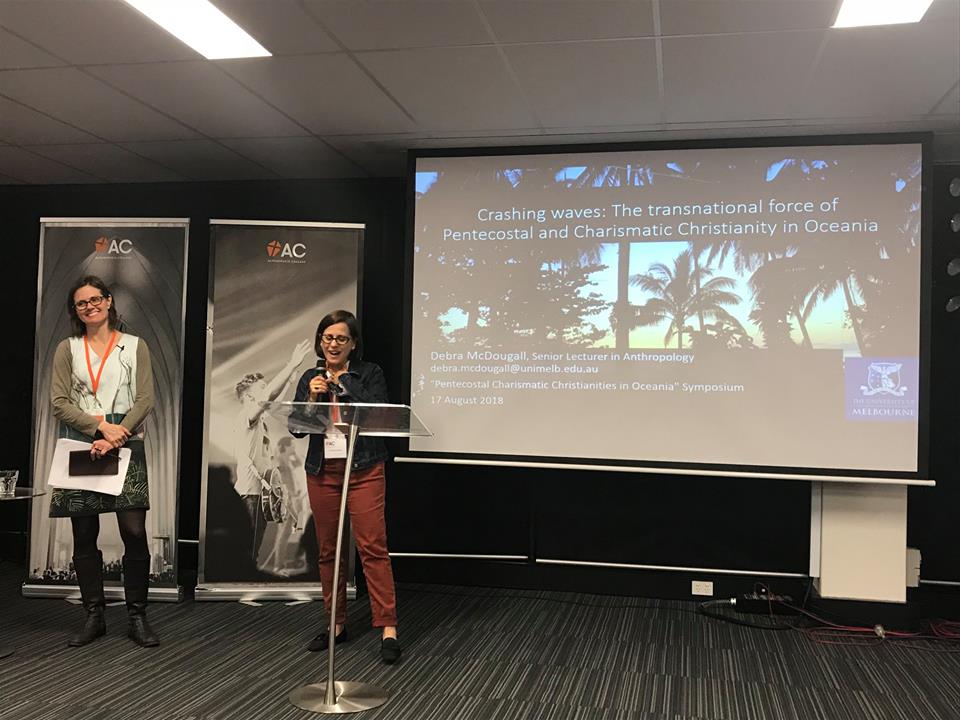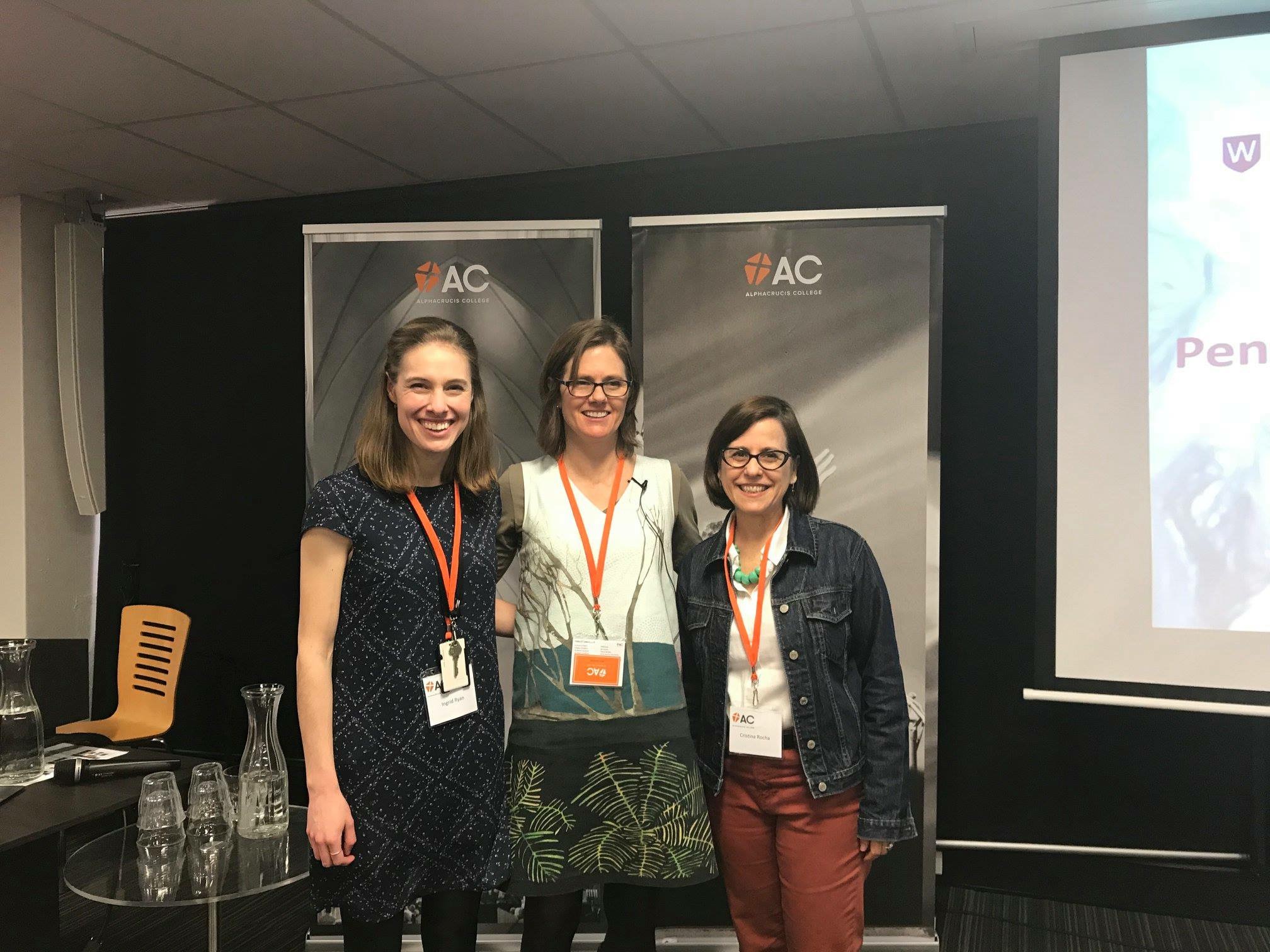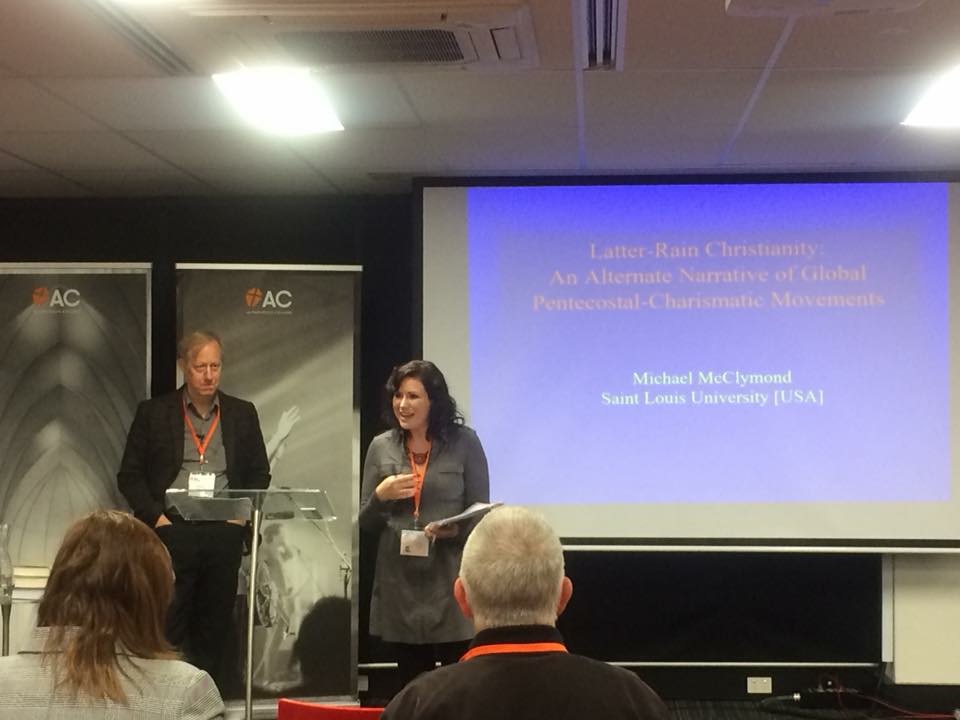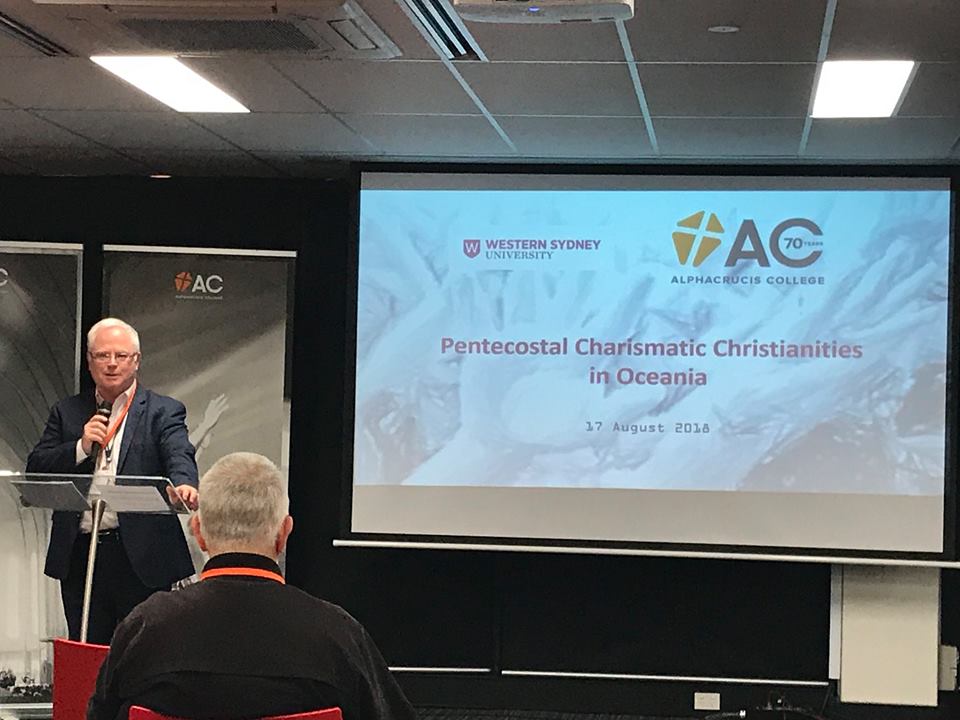2018 Events
Report Launch - 'Australian Muslims: The Challenge Of Islamophobia And Social Distance 2018'
Date: 3 December 2018
Speakers: Professor Riaz Hassan (University of South Australia)
Sponsored by: The Religion and Society Research Cluster (RSRC), The Challenging Racism Project (CRP) and The Australian Association of Islamic and Muslim Studies (AAIMS)
Professor Hassan’s report has twin aims. Firstly, it provides an updated demographic and socio-economic profile of Australian Muslims based on the 2016 Australian Census data. Secondly, it delivers the findings of the Islamophobia and Social Distance surveys. These surveys investigated how a representative sample of 1,000 Australian adults perceived key religious and cultural groups, with a special focus on Muslims. It focused on their perceptions of Muslims and other religious and ethnic groups, with particular attention paid to Islamophobia and social distance, and how these phenomena vary according to key demographics, by respondents’ direct experience with such groups and other variables.
This report offers a new measure of social distance that can be used to investigate responses to key religious and ethnic groups. In relation to Australian Muslims, it explores patterns of Islamophobia and social distance.The report offers a methodological framework for larger future studies of religious and ethnic relations in Australia, and the potential impact (in terms of social and economic disadvantage) on particular sub-populations.
Please find the report launch flyer here (opens in a new window)
Practicing Texts: Materializing the Study of Religious Texts and Textual Practices in Contemporary Religion
Date: 15 November 2018
Speakers: Dr Katja Rakow
During fieldwork in Western Tibetan Buddhist Meditation centers and in Evangelical Bible Study groups, Dr Rakow made two observations that invited her to rethink the way we approach religious texts in the study of religion. The first observation was that popular religious products, such as televangelist programs, course manuals, bestselling advice books or religious Apps, play an important role for religious practitioners in the acquisition of religious knowledge and its enactment in their everyday lives. It is not just authoritative scriptures in the narrow sense – such as the Bible or classical Buddhist scriptures – that have are crucial impact on the formation of religious subjects and worldviews. This observation suggests that we should extend our notion of “scripture” and “authoritative religious texts” to include these other formats and popular textual sources.
The second observation she made in her various fieldwork sites was that religious practitioners engage texts in manifold ways; reading was just one of the many activities in which texts are employed. In the past, religious studies scholars mainly approached religious texts as reservoirs of semantic content, which are accessed through disembodied acts of reading and interpreting. After the ‘material turn’, scholars began to explore religious texts as material objects that are used in rituals or displayed as markers of religious identities. Dr Rakow suggested that we take the materialization of religious texts a step further by conceptualizing all textual practices – from the ritual handling of religious texts to reading and interpreting them – as embodied practices, which engage the material dimension of texts and the sensing body of religious practitioners.
In this lecture, Dr Rakow shared observations from different fieldwork sites and ideas about rethinking the study of religious texts and the category of “scripture” in the light of the material turn, lived religion approaches, and the role of popular textual products in contemporary religion.
Katja Rakow is Assistant Professor of Religious Studies at Utrecht University, The Netherlands. She received her PhD in Religious Studies from Heidelberg University, Germany, in 2010. Her research interests focus on the transcultural dynamics of religious history and the interrelation of religious discourses and practices with broader cultural patterns. Her fields of study are Tibetan Buddhism in the West and contemporary forms of Evangelicalism and Pentecostalism. Her recent publications based on her research in the United States and Singapore include “The Bible in the Digital Age: Negotiating the Limits of ‘Bibleness’ of Different Bible Media,” in Christianity and the Limits of Materiality edited by Minna Opas and Anna Haapalainen (Bloomsbury 2017) and the co-authored article with Esther Berg, “Religious Studies and Transcultural Studies: Revealing a Cosmos Not Known Before?” in the Journal Transcultural Studies (2016).
Please find the symposium flyer here (opens in a new window)
Sport, Culture and Gender: Where are we now?
Date: 8 November, 2018
Organiser: Dr Jennifer Cheng - j.cheng@westernsydney.edu.au
Keynote Speaker:
Associate Professor Kim Toffoletti, Deakin University
Who is visible in sport and recreation? Thinking through gender and cultural diversity
Other Speakers included:
- Associate Professor Jorge Knijnik, Western Sydney University
- Professor Tony Rossi, Western Sydney University
- Dr Rebecca Olive, The University of Queensland
- Dr Bonnie Pang, Western Sydney University
- Assmaah Helal, Program Operations Manager, Football United and Creating Chances
- Natasha Hill, Community Sports Coordinator, Football Officer and Coach, Punchbowl United Football Club
- Yusra Metwally, Founder of Swim Sisters
Despite gains in the raised profile of women’s sport, sportswomen and those from non-Western backgrounds, sport remains a largely masculinised, White institution in the West. This symposium provided an interdisciplinary arena to explore sport from a cultural and gendered perspective.
Issues discussed included but were not limited to:
- How can we discuss sportspeople from minority backgrounds without emphasising their “difference” from White norms?
- What innovative projects exist that seek to engage players from minority backgrounds that go beyond the ‘deficit model’?
- How can we engage different cultural and ethnic minorities, each of which have their own particular values and characteristics?
- What is the evidence that sport assists with social and cultural integration?
This symposium sought to bring together academics, community workers and sportswomen and men who are interested in engaging with key contemporary sport-related issues in Australia and across the globe.
Undoing Whiteness in American Buddhist Modernism: Critical, Contextual, and Collective Turns
Date: 5 November 2018
Speakers: Associate Professor Ann Gleig
This paper explored the ways in which whiteness has functioned in the construction of Buddhist modernism in North America. Drawing on ethnography and textual analysis, it outlined key attempts by Buddhists of Color, and their white allies, to expose and overcome such whiteness before turning to a detailed examination of the pioneering work of Zenju Earthlyn Manuel from the Soto Zen lineage and Larry Yang from the Insight Community to forge an alternative Buddhist hermeneutics of multiculturalism and difference. In conclusion, it situated their work as reflecting critical, collective, and contextual turns in North American Buddhism that signify a wider shift from Buddhist modernism to Buddhism in a postmodern and post-colonial climate.
Ann Gleig is an Associate Professor of religion and cultural studies at the University of Central Florida. Her area of specialization is Buddhism in America and her forthcoming monograph American Dharma: Buddhism Beyond Modernity will be published by Yale University Press in February 2019.
Please find the symposium flyer here (opens in a new window)
Symposium: Migration, Social Inclusion and the Multicultural City
Date: 14 September, 2018
Cities remain at the centre of global migration flows and challenges of diversity – as the principal destination for migrant settlement, as the localised site for national anxieties, as the space where human mobilities, rights and citizenship are facilitated or constrained, and as the everyday mediating ground for both racial and ethnic tensions and cosmopolitan futures.
This symposium invited academics, government and NGOs, community practitioners and industry, to network and come together for collaborative discussion on how we can build more inclusive cities.
Organisers: Dr Kristine Aquino, University of Technology, Sydney and Dr Jennifer Cheng, Western Sydney University
Speakers include:
Professor Kevin Dunn, Western Sydney University
Associate Professor Farida Fozdar, University of Western Australia
Associate Professor Amanda Wise, Macquarie University
Dr Shanthi Robertson, Western Sydney University
Dr Randa Abdel Fattah, Macquarie University
Lisa Button, Centre for Policy Development and Community Refugee Sponsorship Initiative
Tom Nance, Western Sydney Community Forum
Nickie Flambouras, AFL Multicultural Programs
Nirary Dacho, Refugee Talent
For more information, please see the seminar flyer (PDF, 199.05 KB) (opens in a new window)
How do we have a conversation about Islam?
Date: 5 September, 2018
Presenters: Safdar Ahmed, Kaveh Akbari Arya, Oishee Alam, Selda Dagistanli, Iqbal Barkat, Bianca Elmir, Siobhan Irving, Ruby Hamad, Yassir Morsi, Joseph Pugliese, Khaled Sabsabi, Reem Sweid, Can Yalcinkaya
The Symposium aimed to engage members of the community, scholars, artists and community activists on the problems of defining Islam and the impacts of such definitions on the lives of contemporary Muslims in Australia today. It was jointly organized by the Religion & Society Research Stream of Macquarie University, the Religion & Society Research Cluster of Western Sydney University, the Muslim Collective, and Australian Critical Race and Whiteness Studies Association. The symposium was supported by the Leo Kelly Blacktown Arts Centre. The presentations were critical, creative and compassionate interventions that included talks, readings, performances, screenings, followed by discussions. This Symposium was part of the inaugural Social Sciences Week, Australia. Check out the programme here (opens in a new window)
A related event was held on Fri 14th September from 6.30 to 8,30 pm at the Leo Kelly Blacktown Arts Centre. It was a creative development showing of the multiplatform work (theatre/screen) - Terrorist/Apostate
For more information, please see the Symposium Flyer (opens in a new window)
Pentecostal Charismatic Christianities in Oceania Symposium
Date: 17 - 18 August, 2018
A symposium convened by the Religion and Society Research Cluster, School of Social Sciences and Psychology, Western Sydney University & The Australasian Pentecostal Studies Centre, Alphacrucis College.
Keynote speaker: Dr. Debra McDougall (University of Melbourne)
"Crashing waves: The transnational force of Pentecostal and Charismatic Christianity in Oceania and beyond"
For more information, please see the Symposium web page (opens in a new window)




“‘Live it and Spit it’: Hip Hop and the Globalized Muslim Youth of the Asia Pacific"
Date: 2 August 2018
Speaker: Associate Professor Kamaludeen Mohamad Nasir (Director of Peace Studies at the United Nations Association of Singapore)
This talk explored the appropriation of hip hop music by young Muslims in the Asia Pacific. The genre which initially comes as a challenge to religious authorities and the state has developed from a stigmatized art form to one that has been co-opted by grassroots organizations and government ministries. The presentation delved into the different strategies adopted by hip hoppers to not only reconcile their multiple identities but also to ensure the advancement of their craft.
Biography: Kamaludeen Mohamed Nasir is an Associate Professor of Sociology and is the 2016 Western Sydney University International Alumni of the Year. In 2017, he won the Nanyang Research Award for being one of the three best young professors university wide. He is the author of five books namely, Muslims as Minorities: History and Social Realities of Muslims in Singapore (2009), Muslims in Singapore: Piety, Politics and Policies (2010), The Future of Singapore: Population, Society and the Nature of the State (2014), Digital Culture and Religion in Asia (2016) and Globalized Muslim Youth in the Asia Pacific: Popular Culture in Singapore and Sydney (2016). He is currently the Director of Peace Studies at the United Nations Association of Singapore.
For more information, please see the seminar flyer (opens in a new window)
'Who Owns Knowledge?' Ethical Issues Surrounding Power and Secrecy in Conducting Field Research
Date: Tuesday 3 April 2018
Speaker: Professor James Cox (Emeritus Professor of Religious Studies in the University of Edinburgh and Adjunct Professor in the Religion and Society Research Cluster, Western Sydney University)
This seminar took its lead from the fact that researchers in Australia immediately are confronted by the extreme secrecy maintained by Indigenous peoples concerning their ancient songs, ceremonies, sacred objects and religious protocols. This fact raises issues about rights to the possession of knowledge and the power associated with its dissemination. Reporting data obtained from the field and interpreting the results, particularly when the societies studied severely restrict access to local knowledge, impose ethical constraints that have severe ramifications for empirical studies and the reliability of research conclusions. After considering selected case studies, this seminar involved participants in discussions about how to treat sensitive information obtained from research. This not only affects scholars working in Australia, but is of critical importance for those conducting field studies in a wide range of contexts.
Biography: James L Cox is Emeritus Professor Emeritus of Religious Studies in the University of Edinburgh and Adjunct Professor in the Religion and Society Research Cluster, Western Sydney University. In 1999, he was appointed Reader in Religious Studies in the University of Edinburgh and was awarded a Personal Chair in 2006. From 1993 to 1998, he directed the University of Edinburgh’s African Christianity Project which included eight African universities in southern and western Africa. He has held prior academic posts at the University of Zimbabwe, Westminster College, Oxford and Alaska Pacific University. In 2009, he was Visiting Professor of Religion in the University of Sydney and was the de Carle Distinguished Lecturer for 2012 in the University of Otago. His latest monographs include: The Invention of God in Indigenous Societies (Routledge, 2014), An Introduction to the Phenomenology of Religion (Continuum, 2010), From Primitive to Indigenous: The Academic Study of Indigenous Religions (Ashgate, 2007) and A Guide to the Phenomenology of Religion (Continuum, 2006). He has recently co-edited a book with Adam Possamai of Western Sydney University entitled Religion and Non-Religion among Australian Aboriginal Peoples (Routledge, 2016).
For more information, please see the seminar flyer (opens in a new window)
Doing Empirical Research with Action Theory
Date: Wednesday 28 March 2018
Speaker: Prof Gabriele Cappai (University of Bayreuth, Germany)
The point of departure of Professor Cappai's reflections is that human action is the result of the interaction between desires, beliefs and opportunities/constraints. It is difficult to imagine actions in which one of these components is playing no role. A main consequence of this insight for field research is that empirical work, be it quantitative or qualitative in orientation, must be designed in away that allows desires,opportunities
and beliefs to emerge.
In this talk Professor Cappai showed how this strategy of data collection and data interpretation can be adopted in approaches in which the questionnaire is the main instrument of data production. In order to illustrate this, he reflected on on-going empirical research intended to find out people's perceptions and dispositions toward the natural environment. Special attention was dedicated to the religious dimension.
Biography: Gabriele Cappai studied sociology, philosophy and psychology at the University of Erlangen where he obtained his PhD degree. Since 2007 he has been Professor of "Theory and Methods of Empirical Research" (with a special emphasis on qualitative methods) of the Faculty of Cultural Sciences at the University of Bayreuth (Germany). His interests also touch on theory of culture, with a special focus on the topics of intercultural comparison and cultural determinism. Over the past few years his work converged on the theory of action and its relevance for empirical research.
For more information, please see the seminar flyer (opens in a new window)

 Religion and Society
Religion and Society
